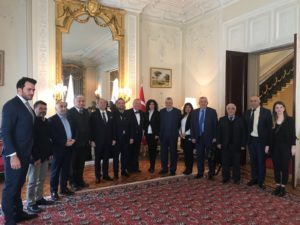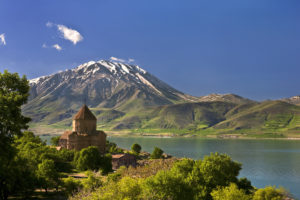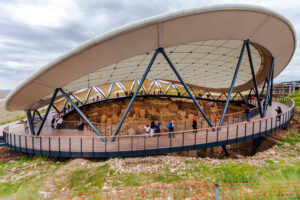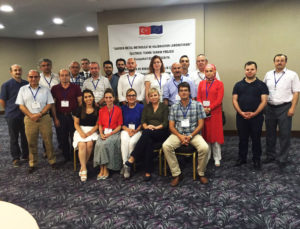
Technical Assistance for Establishment of Rize Tea Research and Application Centre
Rize has the best reserves of tea in Turkey, however, the SMEs in the Tea region is not qualified enough to compete. Hence, the general purpose of the project was to increase the competitiveness of the tea sector concentrated in Rize and its surroundings. More specifically, it wanted

EU Eastern Anatolia Development Programme (EADP)
The East of Turkey has had delayed progress compared to the economic development of other regions in Turkey. In this context, the Eastern Anatolia Development Programme was a regional development programme aimed at building capacity for sustainable development by implementing innovative and participatory local policy and planning approaches.

Technical Assistance for Revitalisation of History in Şanlıurfa
While tourism has been, and continues to be, important to the local economy, it has not matched its potential. To remedy this and attract more tourists, local government and businesses in the city decided to ensure that the standard of services offered to visitors met internationally accepted standards

Technical Assistance to Support CISOP 2014-2020 Operations, Information and Publicity
The overall aims of the “Technical Assistance to Support CISOP 2014-2020 Operations, Information and Publicity” are to increase the competitiveness of the Turkish economy, to open it up to innovation and to reduce regional socio-economic disparities across the country as the Turkish and EU economies converge. We are

Technical Assistance for the Operation of Samsun Metals Metrology and Calibration Laboratory
West black sea region of Turkey which the project named TR83 (Samsun, Çorum, Amasya, Tokat) Region, including Sinop, requires to be contributed through socio-economic development. Thus, the purpose of this contract was to strengthen the innovation and quality infrastructure of the metals industry in the TR83 Region. Laboratory’s

Technical Assistance for Supporting the Solution of Economic and Social Integration Problems in Diyarbakır, Şanlıurfa, Gaziantep, and Erzurum, as Major In-Migrant Destinations
Rapid migration in major urban areas, namely Diyarbakır, Şanlıurfa, Gaziantep and Erzurum (DGES), have adverse impacts in Turkey. To reduce these unfavourable effects, EKOSEP aimed to support social integration and environment-related infrastructure problems due to migration in the selected provinces in a multi-actor manner. Furthermore, it aimed to

